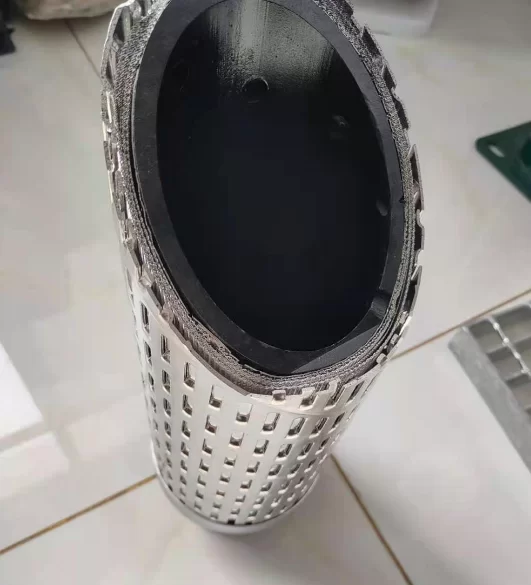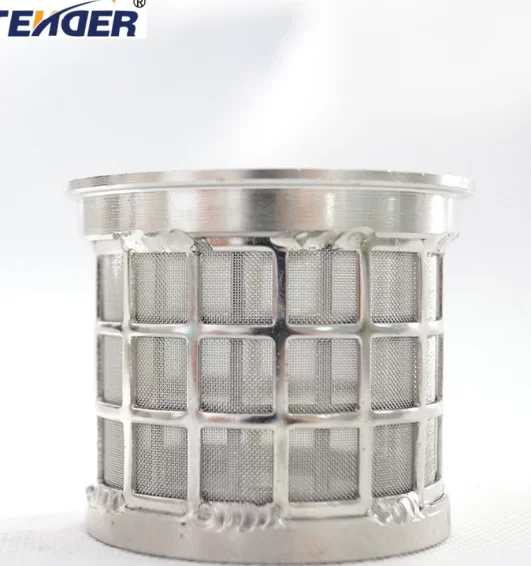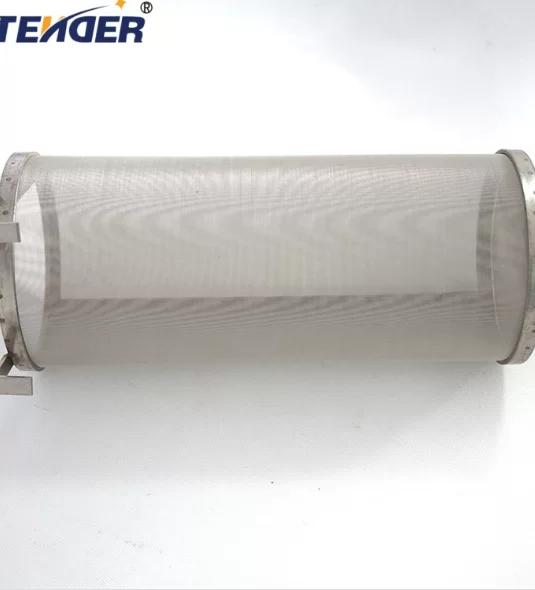In today's complex industrial landscape, efficient and reliable filtration is paramount for operational integrity, product quality, and environmental compliance. Industries from petrochemicals to water treatment heavily rely on robust filtration systems, with specialized components like the metal filter tube, perforated aluminium tube, and perforated filter tube playing a critical role. These components are engineered to withstand extreme conditions, ensuring precise separation and longevity. The evolution of materials science and manufacturing techniques has led to advanced filter designs, including multi-layer composite structures, which offer unparalleled performance in demanding filtration environments. Understanding their technical specifications, manufacturing processes, and diverse applications is key for any B2B decision-maker aiming to optimize their filtration infrastructure and secure long-term operational excellence.
The market for industrial filtration solutions is experiencing dynamic growth, driven by stringent regulatory requirements and the need for enhanced process efficiency. Innovations in materials, such as specialized alloys and advanced composite structures, are expanding the capabilities of filters. For instance, the demand for perforated aluminum square tubing and metal square tube with holes is rising in applications requiring structural integrity alongside filtration, such as support frameworks for larger filtration media or specific architectural uses. Similarly, the versatility of a perforated corrugated drain pipe finds increasing utility in civil engineering and environmental projects, demonstrating the breadth of applications for perforated metal solutions. This sector is not just about filtering particulates; it’s about protecting sensitive equipment, recovering valuable resources, and minimizing environmental impact through superior separation technologies.
Our flagship product, the Multi-layer Composite Woven Wire Mesh Filter Tube, represents a pinnacle in advanced filtration technology. This filtering element is expertly constructed from two or more layers of precision-woven metal mesh, meticulously joined through stacking, edging, or sintering processes. Internally, it is typically reinforced with a robust supporting skeleton, often crafted from punched mesh or coarse woven mesh, to significantly enhance its structural strength and overall stability. This sophisticated multi-layer design provides a distinct advantage over conventional single-layer structures by offering superior mechanical strength, unparalleled filtration stability, and substantially increased pollutant holding capacity. These inherent qualities make it an ideal choice for the most challenging filtration environments, including those characterized by high-pressure, elevated-temperature, and high-viscosity media. Its resilience ensures reliable performance where other filters might fail.

Parameter | Multi-layer Composite Filter Tube | Standard Single-layer Filter |
Filtration Rating | 0.5 – 500 microns | 10 – 1000 microns |
Operating Temperature | Up to 600°C (1112°F) | Up to 300°C (572°F) |
Pressure Differential | Up to 25 bar (362 PSI) | Up to 10 bar (145 PSI) |
Flow Rate Stability | Excellent (maintains high flow under pressure) | Good (may fluctuate under pressure) |
Pollutant Holding Capacity | High (extended service life) | Moderate (shorter service life) |
Material Options | 304L, 316L Stainless Steel, Hastelloy, Inconel | 304L, 316L Stainless Steel |
This comparison clearly highlights the superior performance characteristics of the Multi-layer Composite Woven Wire Mesh Filter Tube. Its enhanced resistance to temperature, pressure, and its greater contaminant holding capacity directly translate into reduced maintenance, longer operational cycles, and ultimately, lower total cost of ownership for industrial facilities. The robust construction ensures integrity even when filtering corrosive or highly viscous fluids, making it a reliable investment for critical applications.
The manufacturing of specialized filtration components like a metal filter tube or a perforated aluminium tube is a testament to precision engineering. It begins with the careful selection of high-grade raw materials, primarily stainless steel alloys (304, 316, 316L), Hastelloy, Inconel, and various grades of aluminum, chosen for their specific corrosion resistance, temperature tolerance, and mechanical strength requirements. For example, 316L stainless steel is often preferred for a perforated filter tube in marine or chemical processing due to its enhanced resistance to pitting and crevice corrosion. Aluminum alloys are favored for lighter weight applications or where specific thermal properties are needed, often seen in a perforated aluminum square tubing designed for airflow or aesthetic purposes.
· Material Preparation & Weaving: For woven mesh filter tubes, precisely drawn wires are woven into specific mesh patterns. For perforated tubes, sheet metal undergoes precise punching or laser cutting to create holes of uniform size and distribution, often forming a metal square tube with holes or a cylindrical perforated aluminum tube.
· Forming & Shaping: Flat sheets or woven mesh are then precisely rolled and welded (e.g., argon arc welding) into cylindrical or square tube forms. Advanced CNC machines ensure high dimensional accuracy.
· Multi-layer Assembly (for Composite Filters): For our Multi-layer Composite Woven Wire Mesh Filter Tube, multiple layers of woven mesh, often with different pore sizes for graded filtration, are stacked and then sintered. Sintering involves heating the layers under controlled conditions to bond them metallurgically, creating an incredibly strong and stable composite structure that can withstand significant pressure differentials and maintain its pore integrity.
· Finishing & Edge Treatment: Edges are meticulously finished to prevent unraveling or media bypass. This can involve crimping, welding end caps, or precision machining to achieve the final product specifications. For components like a perforated corrugated drain pipe, corrugation is added for increased flexibility and surface area.
· Quality Control & Testing: Every component undergoes rigorous inspection. This includes dimensional checks, pore size distribution analysis, integrity testing (bubble point test, pressure drop test), and material verification. Compliance with international standards such as ISO 9001 and various ASTM specifications is non-negotiable, ensuring product reliability and performance. Our filters are designed for an extended service life, often exceeding 5-10 years in typical operational conditions, significantly contributing to energy savings by reducing maintenance and replacement costs.

The versatility and robust nature of metal filter tubes make them indispensable across a multitude of industries. In the petrochemical industry, a high-performance metal filter tube is crucial for catalyst protection, filtration of raw materials, and purification of final products, operating reliably under extreme temperatures and pressures to prevent equipment damage and ensure product purity. Within metallurgy, these filters are used in molten metal filtration to remove inclusions, improving the quality and strength of alloys, and in gas filtration for furnace off-gases. For water and wastewater treatment, perforated filter tube elements play a vital role in pre-filtration, media retention, and sludge dewatering, significantly contributing to the effective purification processes that ensure public health and environmental protection. Their resistance to corrosion is a key advantage, especially in water treatment where exposure to various chemicals is common.
· Energy Saving: By ensuring cleaner process streams, our filters reduce wear and tear on pumps and other downstream equipment, lowering energy consumption and extending asset life. The high porosity and low-pressure drop of our sintered multi-layer filters also minimize pumping costs.
· Corrosion Resistance: Fabricated from advanced alloys, these filters withstand aggressive chemical environments, including acids, alkalis, and high-salinity fluids. This anti-corrosion property is critical in applications like desalinization plants or chemical reactors where a perforated aluminium tube might also be chosen for its inherent resistance to certain corrosive agents, depending on the specific chemical environment.
· High-Temperature Stability: Unlike polymer-based filters, metal filters maintain their structural integrity and filtration efficiency at elevated temperatures, making them suitable for hot gas filtration, steam filtration, and high-temperature liquid processing.
· Backwashability/Cleanability: Many of our metal filter tubes, especially the sintered designs, are easily cleanable via backwashing, extending their useful life and reducing the frequency of replacements, which translates to significant operational savings. This is a considerable advantage over disposable filter media, enhancing sustainability.

Furthermore, in the pharmaceutical and food & beverage industries, ultra-fine metal filter tube products are essential for sterile filtration and particulate removal, meeting stringent FDA and GMP standards. Their inert nature prevents contamination and ensures product integrity. The robustness of a perforated aluminum tube also finds applications in architectural and decorative uses, sound dampening, and as protective screens for machinery where lightweight and corrosion resistance are valued. This broad utility underscores the importance of choosing a reputable manufacturer with proven expertise.
Choosing the right filtration partner is as critical as selecting the filter itself. Reputable manufacturers distinguish themselves through their ability to provide tailored solutions, drawing on extensive experience and adherence to rigorous quality standards. Our company, with over a decade of specialization in industrial filtration, possesses ISO 9001 certification, underscoring our commitment to consistent quality management and customer satisfaction. We collaborate closely with industry leaders in chemical processing and energy sectors, delivering bespoke metal filter tube solutions designed to specific process parameters. Our engineering team leverages advanced CAD and FEA tools to design filters for optimal flow dynamics and mechanical robustness, ensuring peak performance and longevity in every application, from high-pressure reactor filtration to fine particulate removal in sensitive processes.
· Material Selection: Based on media compatibility, temperature, and pressure requirements, we recommend optimal materials, whether it's 316L SS for corrosive environments, Hastelloy for extreme chemical resistance, or perforated aluminium tube for lightweight, high-airflow applications.
· Pore Size & Configuration: From sub-micron precision for fine particle separation to larger perforations for support structures or coarse filtration, we customize pore size, shape, and distribution. This includes specific patterns for a metal square tube with holes or a perforated filter tube.
· Dimensions & End Connections: Filters are manufactured to precise dimensional specifications to integrate seamlessly into existing systems. Various end cap designs (welded, threaded, flanged) and seal types ensure secure, leak-free installation, a critical aspect for systems using a perforated aluminum square tubing as a structural filter element.
· Surface Treatment: Options like passivation or electropolishing enhance corrosion resistance and improve surface finish, crucial for sterile applications in biotech or pharma, further extending the lifespan of the metal filter tube.
"Our clients consistently report significant improvements in process uptime and reduced operational costs after implementing our custom-engineered multi-layer filter solutions. This is a direct result of our meticulous design and quality manufacturing processes, backed by rigorous ASTM standard testing." – Lead Engineer, Filtration Division.
· Q: What is sintering and why is it important for multi-layer filters?
A: Sintering is a process where metal powder or woven mesh layers are heated to a temperature below their melting point, causing particles to bond and form a porous, strong, and stable structure. For multi-layer composite filters, sintering metallurgically fuses the layers, enhancing mechanical strength, improving filtration stability, and preventing media migration under high pressure or temperature. This creates a highly durable metal filter tube.
· Q: Can your perforated aluminum tube withstand corrosive chemicals?
A: Yes, our perforated aluminum tube products are available in various aluminum alloys (e.g., 5052, 6061) that offer excellent resistance to certain corrosive agents, particularly in milder chemical environments and atmospheric corrosion. For highly aggressive chemicals, we would recommend stainless steel, Hastelloy, or Inconel filter tubes.
· Q: What is the typical lead time for a custom metal square tube with holes?
A: Standard custom orders for a metal square tube with holes typically have a lead time of 4-6 weeks, depending on material availability, complexity of perforation patterns, and order volume. Expedited options may be available upon request.
· Q: How do your filters contribute to energy efficiency?
A: Our filters are designed with optimal porosity and low-pressure drop characteristics, which minimize the energy required to pump fluids through the filtration system. Cleaner output also reduces downstream equipment wear, leading to fewer breakdowns and less energy consumption over time, particularly for continuous processes employing a perforated filter tube.
· Q: What kind of warranty do you offer on your products?
A: We offer a 2-year limited warranty on our metal filter tube products against manufacturing defects and material failures under normal operating conditions. Our commitment extends to providing comprehensive customer support for installation and maintenance.
· Q: Are your perforated corrugated drain pipe products suitable for underground installation?
A: Yes, our perforated corrugated drain pipe products are specifically engineered for subsurface drainage applications. They are designed to be durable, resistant to soil corrosion, and maintain their structural integrity under ground loads. Specific material choices ensure compatibility with various soil compositions.
· Q: How do I determine the correct filtration rating for my application?
A: Selecting the appropriate filtration rating involves considering the particle size distribution of the contaminant, the desired purity of the filtered fluid, and process requirements. Our technical sales team can provide expert consultation and recommend the optimal perforated aluminum square tubing or other filter type based on your specific application data.
1. Perry's Chemical Engineers' Handbook, 9th Edition. McGraw-Hill Education, 2018.
2. Fluid Mechanics, Frank M. White, 8th Edition. McGraw-Hill Education, 2015.
3. ASM Handbook, Volume 1: Properties and Selection: Irons, Steels, and High-Performance Alloys. ASM International, 2005.
4. Principles of Filtration and Separation. Elsevier Science, 2004.
5. ISO 9001:2015 Quality Management Systems – Requirements. International Organization for Standardization.
Contact Information
Quick Link
Product
Copyright © 2025 Anping Tengde Metal Wire Mesh Products Co., Ltd. All Rights Reserved. Sitemap | Privacy Policy
Please leave us a message and we will get back to you shortly.
If you are interested in our products, you can choose to leave your information here, and we will be in touch with you shortly.
